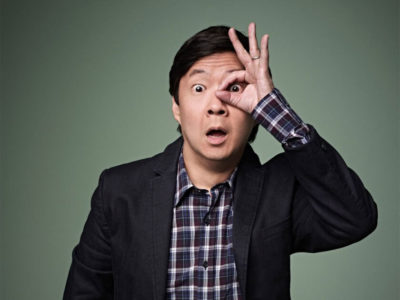“So, what ethnicity are you?”
“Korean-American. My mom’s Korean and my dad’s American.”
Sigh. “Yes I am.”
I had this exchange thousands of times in my mostly white high school in Western Maryland. After being labeled “That Asian kid,” I was ready to embrace the cultural part of my identity in college. For four long years of high school, I felt like I didn’t fully belong in my circle of “typical” white friends. I always felt slightly out of place, like a picture in one of those “spot the difference” pages in a magazine. As I stepped off the graduation stage in my awkward blue gown, I knew college would be different: a clean slate, a second chance and an opportunity to reinvent myself.
I was born in America to a Korean mother and an English and who-knows-what-else father. I could tritely say that like Hannah Montana I had the best of both worlds, but honestly sitting down to a meal of spaghetti and kimchi (a spicy, fermented cabbage dish), entering a living room filled with the dramatic lines of a Korean soap opera and translating between my fervent extended family basically comprised my ethnic life. Aside from the casual, “Are you adopted?” my mom gets whenever we visit Korea and my unhealthy addiction to Korean pastries (choco pie is my binge food), I love my home life. But just like you can’t place spicy Korean pepper paste on an American hamburger (believe me, my family has tried), I couldn’t place my ethnicity. In college, however, I was ready to embrace that quintessential multiethnic group of friends that smiled encouragingly at you on cheesy college brochures.
I walked hesitantly into the Korean Student Association (KSA) general meeting, hoping my moment had come. A flyer from an overly-enthusiastic board member at the student involvement fair brought me here, but I was unsure. Looking around, I saw so many people giving me judge-y eyes like I still didn’t belong. Taking a deep breath, I assured myself that this cultural organization was a piece of my identity: a piece that I wanted, a piece that I deserved.
Nothing special happened at that meeting. No spark of belonging or feeling of warmth flooded my chest during the president’s somewhat trite speech about community and I had a nagging feeling I still wasn’t part of that community.
But I had convinced myself to need this cultural acceptance, so I decided to experience all the opportunities KSA offered. I attended the retreat in Rhode Island, the Korean Dance Culture Show, talent contests, teahouses, culture seminars and information forums. I ate the food at picnics, conversed about Korean-American politics and went along with the best of them in the games we played. Through all of these experiences, I formed great friendships and collected so many wonderful memories, but was still left with a sense of ethnic confusion and isolation. Throughout the year, I asked myself, What am I?
More importantly, I saw more than ever the clear lines of ethnic separation. The friend groups I made were largely Korean and I found myself more and more solely interacting with those within the KSA community, from people I chatted with as I walked to class to the friends I sat with during meals. Brought to my wit’s end by a Facebook post openly–and I guess understandingly–questioning why the “only white guy” was present in the Asian Caucus Ball pictures that my friends and I had posted, I decided to think and reevaluate.
Chipotle is my answer to a rough day. It’s as if all of my problems could be neatly wrapped inside one steaming tortilla, as if $11–including guacamole (duh)–could make my problems disappear, at least for an hour. On a cool day in the spring semester, I sat across from my KSA big brother, a mentor assigned to me in the first weeks of the fall semester. As we laughed about finals and Netflix, I realized how great a friendship I had, one that obliterated all my ethnic confusion and insecurity. I never felt out of place with my KSA “hyung” (Korean for, you guessed it, big brother). As I finished my burrito, I reflected on not just the friend seated across from me, but all of the valuable relationships I had formed through KSA. The one-on-one lunches, fun Vietnamese food outings and amazing conversations would never have happened if I hadn’t decided to test the waters and accept my so-called Asian identity.
I asked myself then, are culture and ethnicity really decided by a community? In some sense, yes. But in my experience, the real, palpable feeling of culture and belonging is found in daily interactions with friends and loved ones. Regardless of skin color, the love people have in their hearts for one another truly encompasses the feeling of ethnic identity. The food, the customs, the clothes–that all comes later. Ethnicity, in its purest form, is an emotional intimacy with those around you. So yes, culture shows and ethnic events are great, but the true feeling of culture is sharing it with someone close.
So no, I didn’t form that model group of multicultural friends you see laughing on your college’s home page, but in my suite next year, seven Koreans will be living together–eight if you count me. I still don’t know how to define myself and that’s ok because I have seven supporting friends close by.



















